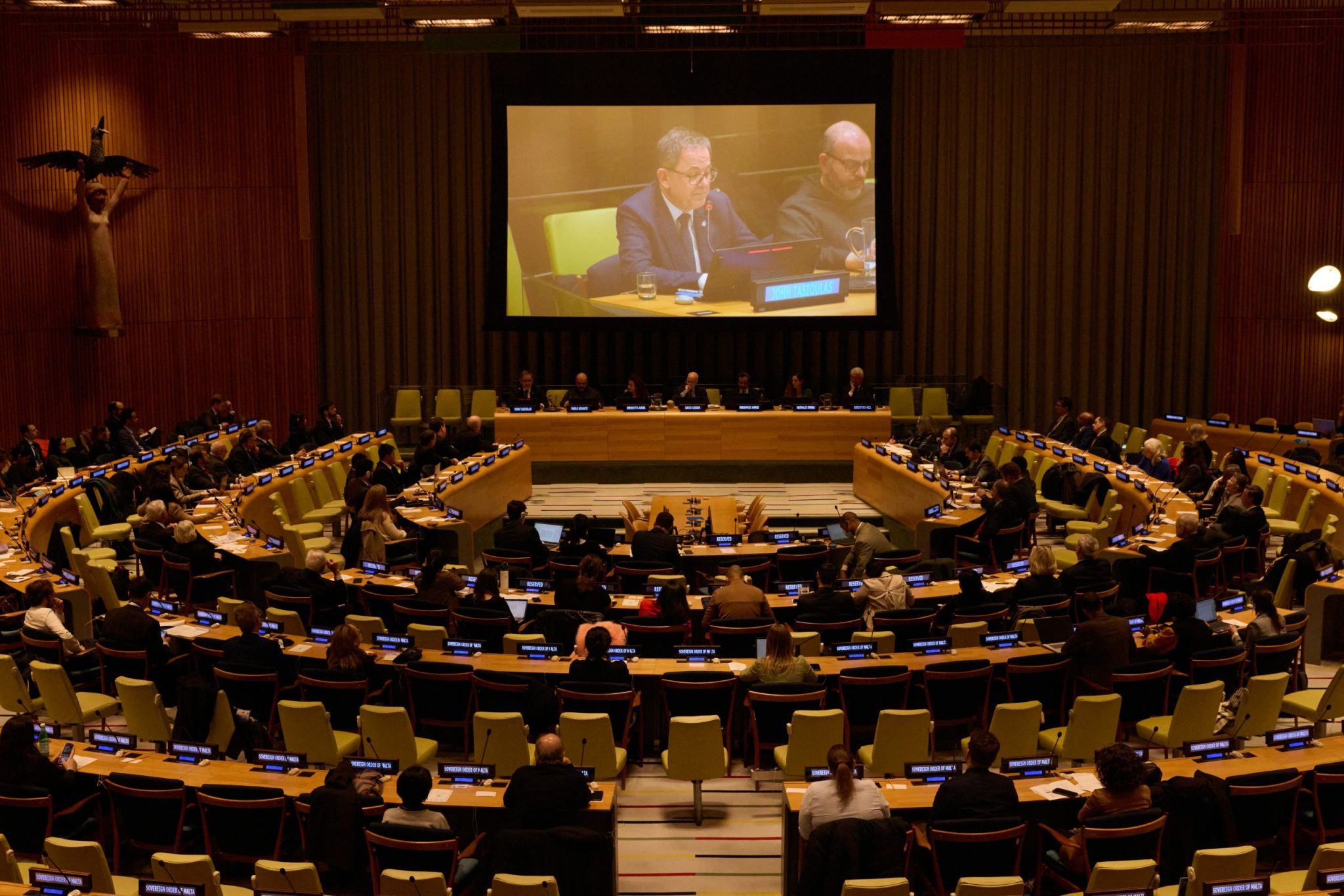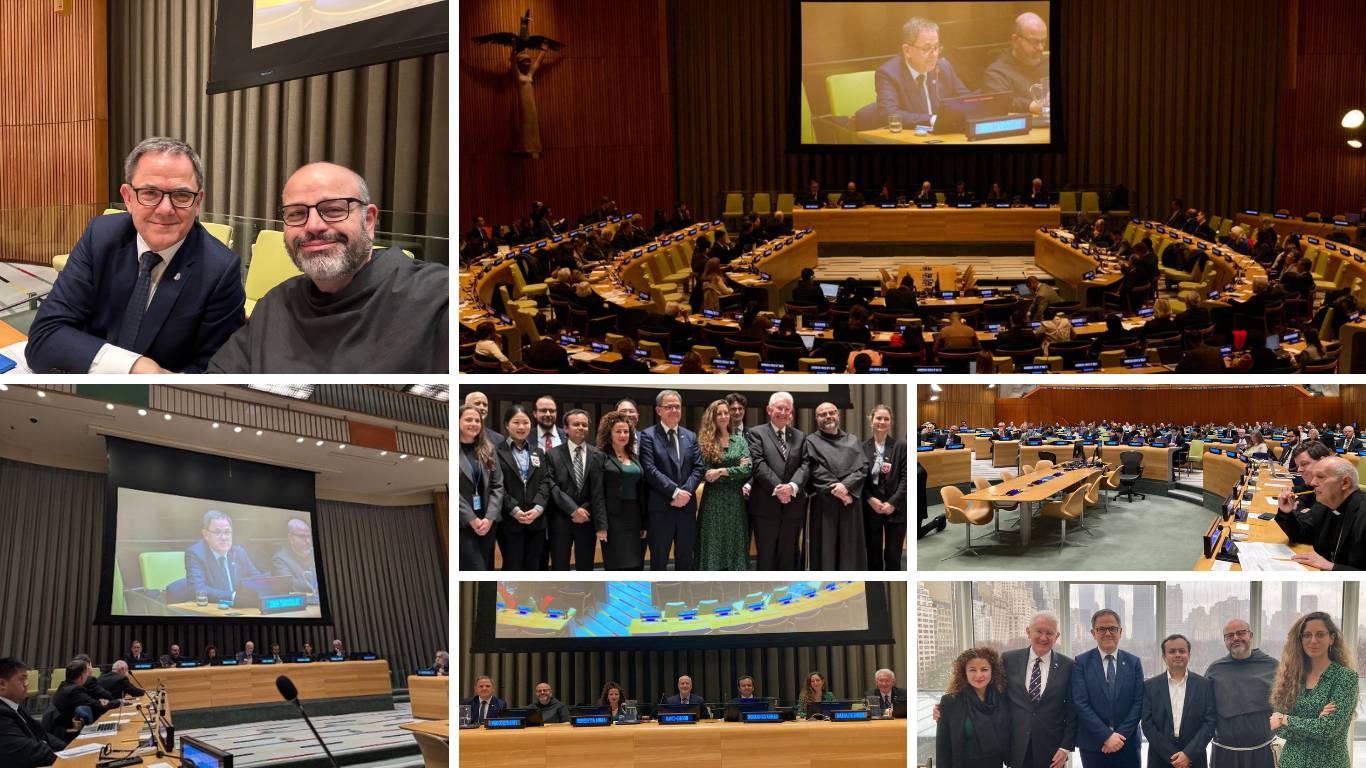
“Can Moral and Ethical Boundaries be Applied to Artificial Intelligence? The Humanistic and Interfaith Response”, was the topic addressed during the panel discussion hosted by the Sovereign Order of Malta's Permanent Observer Mission to the United Nations, in partnership with a number of states, during UN’s Interfaith Harmony Week at United Nations Headquarters, NYC. The panel delivered a thought-provoking dialogue on the ethical implications of artificial intelligence (AI).
The panel, co-keynoted by Professor John Tasioulas, Director of the Institute for Ethics in AI at the University of Oxford, and Fr. Paolo Benanti, Professor of Ethics at the Pontifical Gregorian University and advisor to Pope Francis on AI ethics, highlighted the critical need to take ethical values seriously in navigating the challenges posed by AI, including the power shifts it is facilitating.
AI has rapidly emerged as one of the most significant and contentious technological advancements of our time. AI's capabilities in aggregating vast amounts of data and providing solutions with practical outcomes have far-reaching implications across various sectors, including the economy, government, media, academia, non-profit organisations, the military, and society at large.
Reflecting on the event, Professor Tasioulas remarked: “It was an honour to speak at the conference, as it presented a tremendous opportunity to articulate the humanistic approach to AI ethics we have been developing at the Institute in front of a global audience.”
During the panel discussion, Professor Tasioulas said: “To the question whether moral and ethical boundaries can be applied to AI systems, the answer is obviously yes. These systems have dramatic implications for the quality of life on this planet. And these implications are not emanations of some inexorable process over which we have no control, but are shaped at every turn by human choices. However, the first question in ensuring an ethical AI is not what boundaries it mustn’t transgress, but what positive good it achieves. The answer that a humanistic ethic gives is that this good is the promotion of human flourishing in a just manner.”
In his talk, Professor Tasioulas stressed two dangerous shifts associated with the AI revolution. First, an ideological shift, in which the hype around AI weakens our grasp of the difference between humans and machines and distorts our understanding of both our problems and our values. And, second, a power shift whereby AI and digital technology generally has increasingly transferred governance functions, such as the administration of justice, into the hands of powerful but unaccountable tech corporations.
In response to these two challenges, Professor Tasioulas suggested remedies such as the recognition of a right to a human decision, the need to re-think the division of labour between governments and corporations, and the need for greater democratic control over the direction of AI technology, including by democratizing corporate decision-making.
The panel also featured speakers Nathalie Smuha (a Visiting Fellow this term at the Institute for Ethics in AI), Dr Muhammad Aurangzeb Ahmad, Dr Azeem Azhar, and Professor Benedetta Audia, addressed ways of ensuring that machine learning does not undermine human decision-making capacity or the moral and ethical frameworks of society. A key theme emphasised by a variety of speakers was that the novel challenges posed by AI do not require the construction of a radically new framework of regulation. Instead, it was important to apply to these new technologies the accumulated wisdom embodied in our various philosophical, religious, and political traditions.
This panel discussion proved to be a cornerstone event during UN Interfaith Harmony Week, promoting the welfare of humanity through thoughtful discourse on AI ethics and interfaith collaboration. The event underscored the importance of ethical considerations in the development and deployment of AI technologies, emphasising the need for a humanistic and interfaith approach in addressing these challenges.
At the University of Oxford, we are committed to advancing ethics in AI, and the Institute for Ethics in AI plays a key role in this endeavour. The Institute brings together world-leading philosophers and experts in the humanities and social sciences with the developers and users of AI in academia, business, and government. The ethics and governance of AI is an exceptionally vibrant area of research at the University of Oxford, and the Institute serves as a crucial focal point for much of this inter-disciplinary activity.

